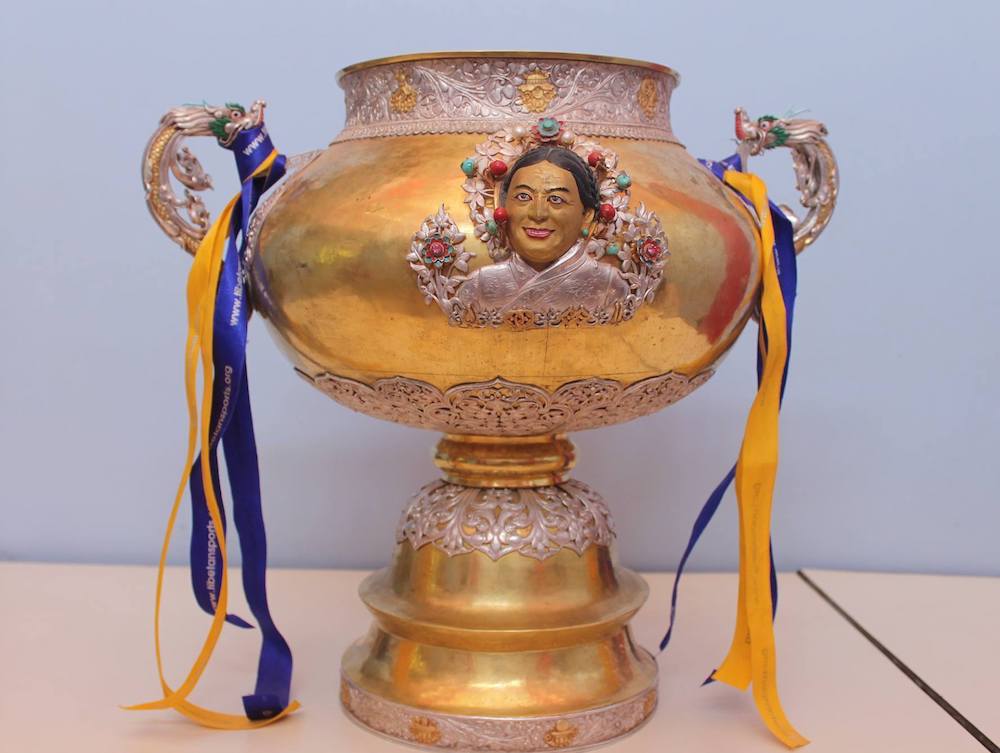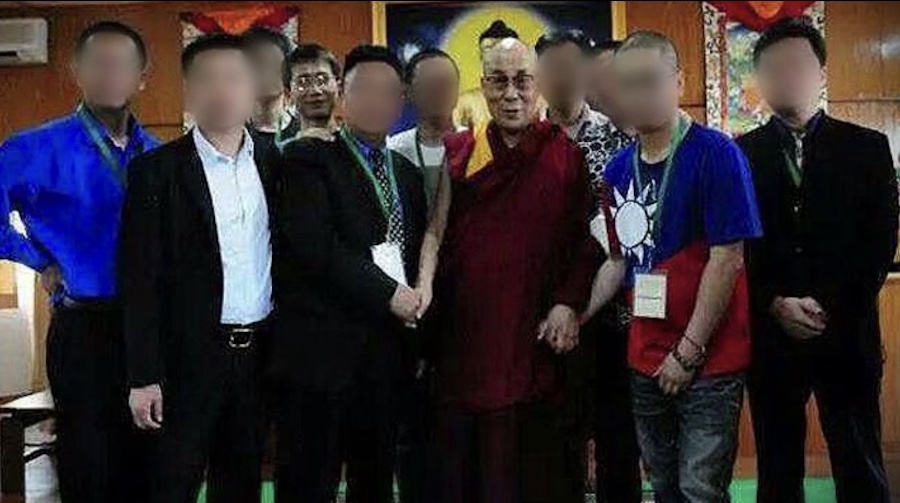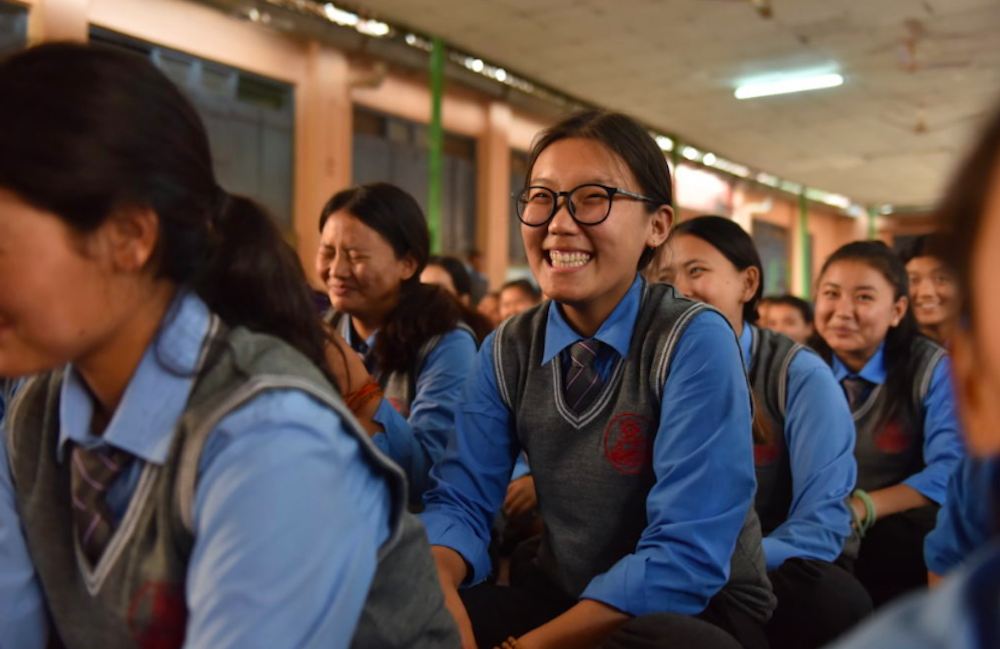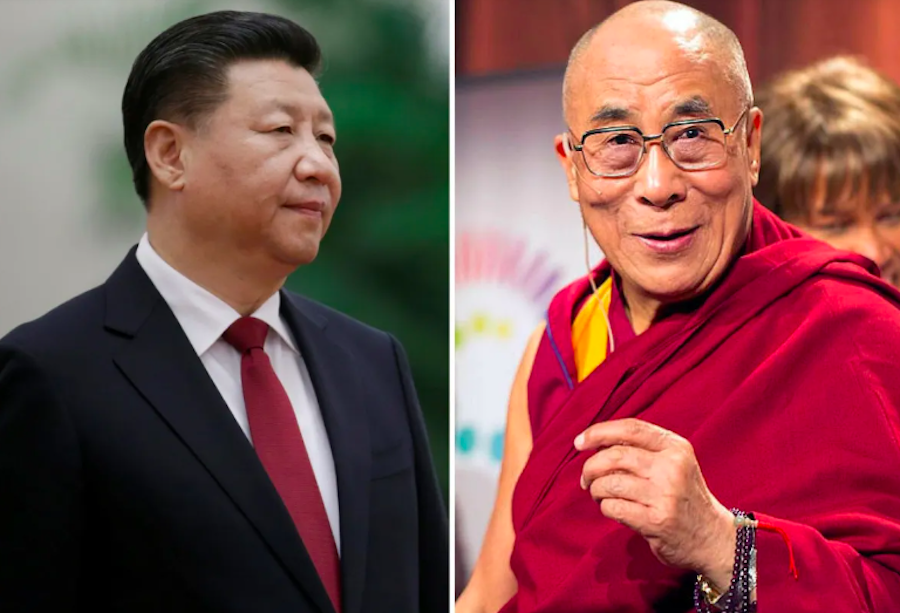By CHARLES HUTZLER, Associated Press Writer
LHASA, China – China’s Tibet problem got a human face this week in images of crying, red-robed monks, giving international concern a new focal point just as Beijing gears up for the arrival of the Olympic torch.
The outburst by 30 monks at Lhasa’s holiest shrine dealt a setback to the government’s plans to use a three-day trip for foreign reporters to show that protests and deadly anti-Chinese rioting in the Tibetan capital two weeks ago had subsided.
“We are like prisoners here. There are soldiers all over the place,” the monks shouted as officials tugged at the foreign reporters to leave the Jokhang Temple. The monks called for the return of the Dalai Lama from exile and an end to religious restrictions: “We want freedom.”
With the Olympic torch coming to Beijing on Monday, the images of the monks in newspapers and on television the world over have further upset the communist government’s plans to use the August games to showcase China as a confident, respected power.
“How many people watching these images in the West will buy China’s story?” asked Steve Tsang, a China politics expert at Oxford University. “Instead, what you see are these heroic monks who are risking a lot for their cause. That’s something your average Westerner is very sympathetic with.”
The Jokhang monks are drawing critical attention to China just as the image of a lone man confronting a tank column came to embody world concerns over the crushing of the Tiananmen democracy movement in 1989.
U.S., British and other diplomats who flew into Lhasa on Friday for their own government-invited tour planned to ask their hosts about the monks. European Union foreign ministers gathered Friday in Slovenia to discuss a response to China’s suppression of the protests.
President Bush and Australia’s new prime minister, Kevin Rudd, said Friday they want Chinese leaders to meet with the Dalai Lama — Tibet’s exiled but still revered leader — to defuse tensions.
“It is absolutely clear that there are human rights abuses in Tibet,” Rudd told reporters after meeting with Bush in Washington.
Beijing does not have a public relations problem on Tibet with its own people. All media in China are state-controlled so most Chinese see the Tibet protests through reports that hew to the government line: lawless rioting aimed at Chinese and instigated by Dalai Lama supporters.
Chinese and foreigners living in China say Internet controls have ramped up, with Tibet reports on Google and Yahoo and other foreign news sites blocked and Tibet-related discussions on domestic chat sites censored.
The Olympics are overwhelmingly popular among Chinese. But the Lhasa protests, which spread to dozens of Tibetan communities across western China in one of the broadest challenges to Chinese rule in decades, have compounded Beijing’s problems in rallying international public opinion ahead of the Olympics.
Already Beijing was struggling to counter foreign critics on human rights, media restrictions and China’s relations with Sudan, where the Darfur region has been the site of a bloody conflict since 2003.
“They’re not quite as skilled with the serve-and-volley as they could and should be. It’s a skill they need to learn,” said David Wolf, a business communications consultant in Beijing. “The question is: Are they going to learn quickly enough? It’s crash course time.”
Jitters over the situation in Lhasa were evident Friday — the last day of the foreign reporters’ visit — and throughout the government tour.
Police closed lanes in the old Tibetan city leading to a mosque for Friday prayers, allowing only worshippers and residents in. The mosque and many Muslim-owned shops were targeted by rioters, apparently out of resentment for their prominence in business.
Officials took the reporters to interview injured soldiers and Chinese who were attacked or whose businesses were burned during the rioting. All of them had been screened and previously interviewed by state media. Reporters who attempted to report independently were followed.
At the same time, the fact that the trip happened at all was a sign that Beijing wants to appear responsive to international concerns.
Officials accompanying the reporters agreed to a request to interview Tibetans detained for rioting. They also tried to spin Thursday’s Jokhang outburst, saying it signaled government tolerance.
“China is more open. You can see that in the Jokhang. The monks told you things that are not identical with the government,” said Zhang Lizhong, a Ministry of Foreign Affairs official posted to Lhasa to deal with visiting foreigners.
Yet the government also seemed intent on laying blame for the rioting on the Dalai Lama and his supporters without addressing grievances by Tibetans over the influx of Chinese migrants and, as with the Jokhang monks, religious restrictions.
“This incident started on March 10, and everyone knows March 10 is the day in 1959 that the Dalai Lama instigated a rebellion,” Drubkang, a lama who heads Tibet’s government-backed Buddhist Association, told reporters. “So this was premeditated.”
It’s a message that’s a tough sell for Western publics that tend to see the Nobel Peace Prize-winning Dalai Lama as a spiritual figure of moral authority.
On Friday, the Dalai Lama reiterated that he supported Beijing’s holding of the Olympics but decried state media’s depiction of the protests, which has dwelled on violence against Chinese.
“The state media’s portrayal of the recent events in Tibet, using deceit and distorted images, could sow the seeds of racial tension with unpredictable long-term consequences. This is of grave concern to me,” he said in a statement from his base in exile, Dharmsala, India.
To many, the monks’ outburst reaffirms what Bush, Rudd and other Western leaders have said — that China should open talks with the Dalai Lama to ease tensions in Tibet. It’s a demand Chinese leaders have resisted so far.
“For people, in this case the monks, to disrupt a press conference, it’s extremely bold and very unusual,” said Rebecca MacKinnon, a journalism professor at Hong Kong University. “It shows how angry people are.”









